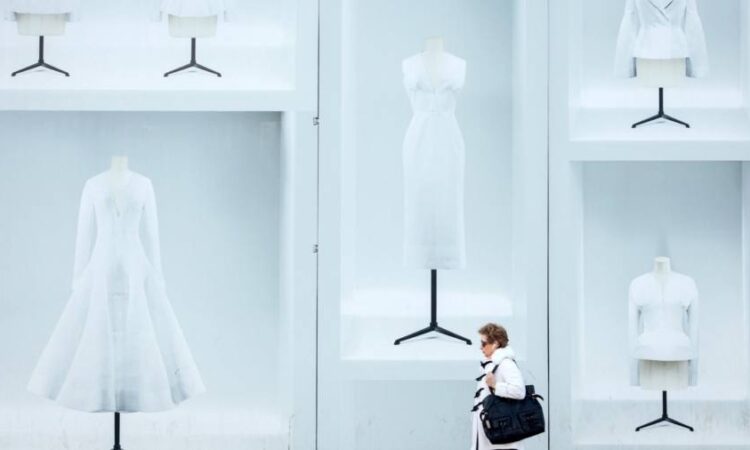
The writer is chair of Rockefeller International
European markets have received a big lift from the global boom in luxury sales — a piece of unambiguously good news for the region. Nonetheless this success story also raises a troubling question: has Europe become too reliant on a sector many see as a symbol of decadence?
Contrast Europe to the US, where over the past 12 months 10 of the biggest tech firms accounted for 65 per cent of stock market returns — which is itself an alarming sign of industry concentration. The similar signs of concentration are even more concerning in Europe. There, 10 of the biggest luxury stocks, from LVMH to Ferrari, have accounted for about 30 per cent of returns — a share unmatched since records began.
Long a source of pride in Europe, the luxury industry took off over the past decade and had its best years ever during the pandemic. Record stimulus added trillions in new wealth, much of it in the hands of the very rich, who spent a good chunk of it on high-end goods.
As a result, Europe is finally making sizeable money from an industry that it has ruled for centuries. Two-thirds of global luxury sales revenues flow to Europe, and now the continent has stock market winners to show for it.
Europe’s list of top 10 companies by market capitalisation, which has historically been dominated by banks, utilities and industrial conglomerates, now features four luxury names, up from zero at the start of the 2010s. Its big luxury brands are even more profitable than big US tech, with earnings amounting to nearly 25 per cent of revenue.
This may be a step forward for the luxury industry but it is not so much of one for Europe. Building a knowledge economy on crafts dating back to the 17th century is arguably a backwards move at a time when western capitalism faces weak productivity growth, rising wealth inequality and the conundrum of how to compete and coexist with China.
If it’s not clear how much smartphones boost productivity growth, it is safe to say that French perfume and Italian handbags contribute even less. While tech tycoons are subjects of controversy in the US, luxury tycoons are targets of street protests in France. And as the west debates whether to “derisk” its relationship with China, the European luxury sector is as dependent as ever on Chinese consumers, who now account for about a third of its sales.
As US tech got bigger over the past decade, so did European luxury. Since 2010, the 10 big tech firms have roughly quadrupled their share of the US stock market to nearly 25 per cent. Over the same period, the 10 biggest luxury stocks have roughly tripled their share of the European markets to nearly 15 per cent — with much of that gain over the past year.
In luxury as in tech, power is concentrating at the very top. The top European brands now account for a third of global sales, up from a quarter in 2010. Europe’s top four luxury companies, by market cap, are all French: LVMH, L’Oréal, Hermès, and Christian Dior (which is owned by LVMH).
The roots of French dominance lie in a luxury ecosystem that dates to the court of Louis XIV, and a culture of corporate raiding that began with Bernard Arnault. After gaining control of LVMH in 1989, he set out to build the first house of luxury brands through serial acquisitions. Rivals followed his lead. Increasingly, the global luxury industry is based on goods that are still made by small Italian firms but sold by big French conglomerates. Gucci, Bulgari, Fendi — all are Italian brands now under French owners.
While US tech firms overshadow all rivals, the same can be said of French luxury. Among the top luxury firms, the French have annual sales three times higher than the Swiss, more than four times the Americans and Chinese and 12 times the Italians.
In April, LVMH became the first European company to pass the half-trillion-dollar mark. Hermès now has margins over 40 per cent, up from 25 per cent in 2010 and above that of even Microsoft, the most profitable of the big tech firms.
One reason for such high profits is pricing power. Luxury companies serve a clientele that is increasingly price-insensitive. The price of a Chanel handbag has doubled over the past five years to $10,000 — far outpacing the surge in general consumer price inflation seen over that period.
So Europe has finally found a winner, but with an asterisk. Capitalism gains more from competition than concentration. And given the choice between concentration in high tech or high luxury, the answer would be clear. There is something a bit outdated, if not actually decadent, in Europe’s luxury-led model.





